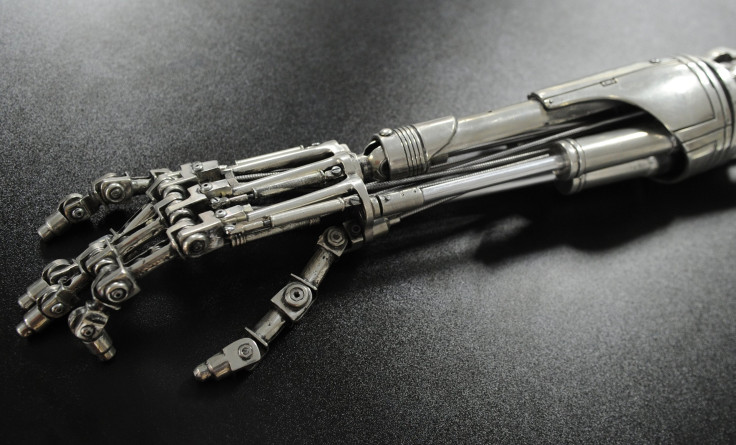Elon Musk, Stephen Hawking, Steve Wozniak Say No To Skynet, Call For AI Weapons Ban

Over a thousand scientists, artificial intelligence experts, researchers and technology leaders have signed an open letter urging world governments to block the development of “offensive autonomous weapons” to prevent the start of a “military AI arms race." The open letter will be presented by the Future of Life Institute, during the opening of the “International Joint Conferences on Artificial Intelligence," which begins Tuesday in Buenos Aires, Argentina.
Among its signers are several high-profile members of the technology and science field, such as Tesla CEO Elon Musk, Noam Chomsky, Stephen Hawking and Apple co-founder Steve Wozniak. In the letter, the authors argue against AI weapons. Last year, Musk also warned against the dangers of AI in a tweet, calling it “potentially more dangerous than nukes.”
“The key question for humanity today is whether to start a global AI arms race or to prevent it from starting,” an excerpt from the letter reads. “If any major military power pushes ahead with AI weapon development, a global arms race is virtually inevitable, and the endpoint of this technological trajectory is obvious: autonomous weapons will become the Kalashnikovs of tomorrow.”
The authors of the letter further argue that AI could be used to make battlefields safer for humans, but development of AI weapons would make it easier for warlords, terrorists and dictators to conduct ethnic cleansings, assassinations or even control a populace.
Worth reading Superintelligence by Bostrom. We need to be super careful with AI. Potentially more dangerous than nukes.
— Elon Musk (@elonmusk) August 3, 2014It’s a future that has also been depicted in pop culture as well. One of the most prominent examples is the “Terminator” film series, where a fictional AI computer called Skynet became self-aware and attempts to exterminate the human race with nuclear weapons and cyborgs.
It’s not the first time that proactive steps were taken to prevent a futuristic arms race. In 1967, several nations signed the “Outer Space Treaty,” in which participatory countries, such as the U.S., the U.K. and Russia, agreed to not place weapons of mass destruction in orbit of Earth, on the moon or anywhere in space. To date, 103 nations are members of the treaty, with at least 20 that have yet to complete the ratification process.
© Copyright IBTimes 2025. All rights reserved.






















